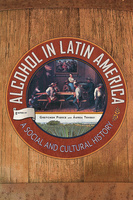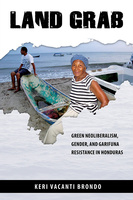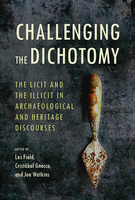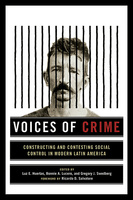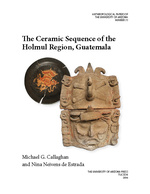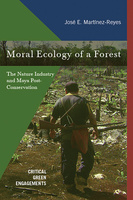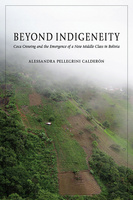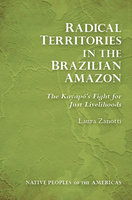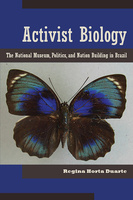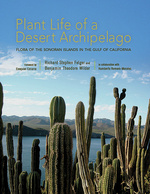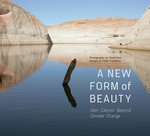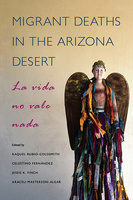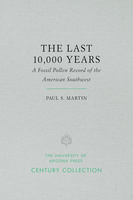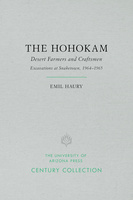The University of Arizona Press is the premier publisher of academic, regional, and literary works in the state of Arizona. They disseminate ideas and knowledge of lasting value that enrich understanding, inspire curiosity, and enlighten readers. They advance the University of Arizona’s mission by connecting scholarship and creative expression to readers worldwide.
Showing 451-465 of 1,704 items.
Alcohol in Latin America
A Social and Cultural History
Edited by Gretchen Pierce and Maria Áurea Toxqui
The University of Arizona Press
The first interdisciplinary study to examine the historic role of alcohol across Latin America and over a broad time span. Contributors use the disciplines of anthropology, archaeology, art history, ethnohistory, history, and literature to examine alcohol use in six locations—the Andean region, Argentina, Brazil, Chile, Guatemala, and Mexico—thus offering a better understanding of race, class, gender, state-building, and more.
Land Grab
Green Neoliberalism, Gender, and Garifuna Resistance in Honduras
The University of Arizona Press
This is a rich ethnographic account of the relationship between identity politics, neoliberal development policy, and rights to resource management in native communities on the north coast of Honduras. It also answers the question: can “freedom” be achieved under the structures of neoliberalism?
Doing Good
Racial Tensions and Workplace Inequalities at a Community Clinic in El Nuevo South
The University of Arizona Press
Throughout the “New South,” relationships based on race, class, social status, gender, and citizenship are being upended by the recent influx of Latina/o residents. Drawing on direct experiences and first-hand interviews, Doing Good provides an informative and fascinating view of how changing demographics are profoundly affecting the new social order.
Challenging the Dichotomy
The Licit and the Illicit in Archaeological and Heritage Discourses
The University of Arizona Press
Challenging the Dichotomy explores how dichotomies regarding heritage dominate the discussions of ethics, practices, and institutions. Contributing authors underscore the challenge to the old paradigms from multiple forces. The case studies and discourses, both ethnographic and archaeological, arise from a wide variety of regional contexts and cultures.
Voices of Crime
Constructing and Contesting Social Control in Modern Latin America
The University of Arizona Press
Voices of Crime examines how different social groups constructed, contested, navigated, and negotiated notions of crime, criminality, and justice. The authors seek to document and illustrate the everyday experiences of crime in particular settings, emphasizing under-researched historical actors such as criminals, victims, and police officers. The fresh research offers a critical approach to the very definition of crime and its perpetrators, suggesting that “not only the actions of the poor and racial others but also the state can be termed as criminal.”
The Ceramic Sequence of the Holmul Region, Guatemala
The University of Arizona Press
New and comprehensive sequencing of the ceramics in Guatemala’s Holmul region provides answers to important questions in Maya archaeology. In this comprehensive and highly illustrated new study, authors Callaghan and Neivens de Estrada use type:variety-mode classification to define a ceramic sequence that spans approximately 1,600 years.
Moral Ecology of a Forest
The Nature Industry and Maya Post-Conservation
The University of Arizona Press
Moral Ecology of a Forest provides an ethnographic account of conservation politics, particularly the conflict between Western conservation and Mayan ontological ecology. Author José E. Martínez-Reyes documents how Maya moral ecologies of the forest support their continuous resistance amid the pressures and global schemes of the nature industry.
Beyond Indigeneity
Coca Growing and the Emergence of a New Middle Class in Bolivia
The University of Arizona Press
Beyond Indigeneity offers new analysis of indigenous identity and social mobility that changes the discourse in Latin American social anthropology. Alessandra Pellegrini Calderón explores the positioning of coca growers in Bolivia and their reluctance to embrace the politics of indigeneity.
Radical Territories in the Brazilian Amazon
The Kayapó’s Fight for Just Livelihoods
The University of Arizona Press
Radical Territories in the Brazilian Amazon sheds light on the creative and groundbreaking efforts Kayapó peoples deploy to protect their lands and livelihoods in Brazil. Laura Zanotti shows how Kayapó communities are using diverse pathways to make a sustainable future for their peoples and lands. The author advances anthropological approaches to understanding how indigenous groups cultivate self-determination strategies in conflict-ridden landscapes.
Activist Biology
The National Museum, Politics, and Nation Building in Brazil
The University of Arizona Press
Activist Biology is the story of a group of biologists at the National Museum in Rio de Janeiro who joined the drive to renew the Brazilian nation, claiming as their weapon the voice of their fledgling field. It offers a portrait of science as a creative and transformative pathway. This book will intrigue anyone fascinated by environmental history and Latin American political and social life in the 1920s and 1930s.
Plant Life of a Desert Archipelago
Flora of the Sonoran Islands in the Gulf of California
By Richard Stephen Felger, Benjamin Theodore Wilder, and Humberto Romero-Morales; Foreword by Exequiel Ezcurra
The University of Arizona Press
Plant Life of a Desert Archipelago is the first in-depth coverage of the plants on islands in the Gulf of California found in between the coasts of Baja California and Sonora. This collective effort weaves together careful and accurate botanical science with the rich cultural and stunning physical setting of this island realm.
A New Form of Beauty
Glen Canyon Beyond Climate Change
By Peter Goin and Peter Friederici
The University of Arizona Press
Contemplating humanity’s role in the world it is creating, Peter Goin and Peter Friederici ask if the uncertainties inherent in Glen Canyon herald an unpredictable new future. They challenge us to question how we look at the world, how we live in it, and what the future will be.
Migrant Deaths in the Arizona Desert
La vida no vale nada
The University of Arizona Press
Migrant Deaths in the Arizona Desert addresses the tragic results of government policies on immigration. The book’s central question is why are migrants dying on our border? The authors constitute a multidisciplinary group reflecting on the issues of death, migration, and policy.
The Last 10,000 Years
A Fossil Pollen Record of the American Southwest
The University of Arizona Press
The Hohokam
Desert Farmers and Craftsmen, Excavations at Snaketown, 1964–1965
The University of Arizona Press
Stay Informed
Subscribe nowRecent News


